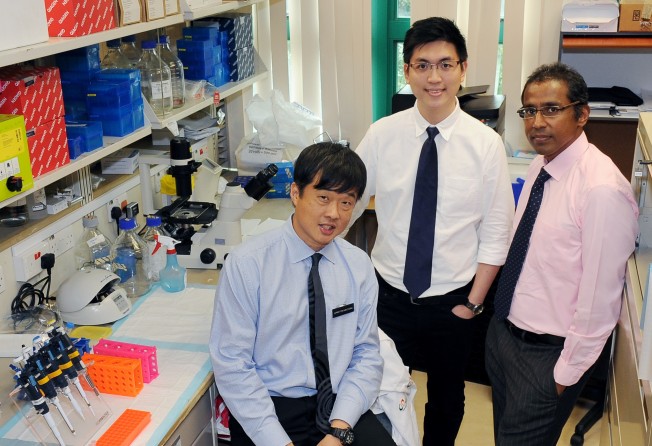
Hong Kong scientist helps find missing gene key to liver cancer
Breakthrough hailed as 80 per cent of cases are in Asia

Liver cancer patients could be given more effective drugs in future after an international study involving a Hong Kong scientist discovered how a missing gene plays a key factor in the development of the disease.
More than 80 per cent of cases are in Asia and it is the third deadliest cancer in Hong Kong.
The research team, comprised of scientists from the National Cancer Centre Singapore and the Cleveland Clinic in the United States, linked the absence of the GATA4 gene to the growth of cancerous cells in patients.

While GATA4 was already known to be important to other organs such as the heart, Shuen said a clearer picture had now emerged about the role of the gene in maintaining a healthy liver. In experiments, mice whose GATA4 gene was removed developed fatty liver and later progressed into obesity and liver cancer.
Of 55 liver cancer patients in Singapore tested by researchers, 24 had lost the gene. Shuen said researchers in the future would look into why this specific gene was missing in some people.
Stephen Chan Lam, associate professor at Chinese University of Hong Kong’s department of clinical oncology, who was not involved in the study, said the findings could be “potentially important” as the gene was found to be a key player in preventing the liver to develop such diseases.
Findings of the study have been published in the Journal of Clinical Investigation. Liver cancer is the second deadliest across the world.
Shuen said they would be seeking opportunities to work with the University of Hong Kong on whether patients in the city were also affected by the missing gene.
Toh Han Chong, deputy director of the Singaporean institution and one of the study leaders, hoped the discovery would bring more effective drugs to patients in the future.
“A new understanding of pathways related to GATA4 deletion ... now provides an unprecedented opportunity to seek out new targets for therapeutic intervention against liver cancer,” Toh said.
He added that the current treatment for advanced liver cancer was “not curative” and could prolong the lives of patients by an average of three months. Also, the drug reduced tumour size in less than 5 per cent of patients.
Toh said further studies had begun to gauge a deeper understanding on the underlying mechanism of the loss of GATA4 and the development of potential drugs.